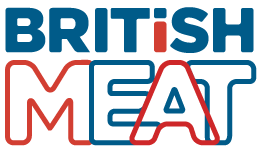Health & Diet
How should the meat industry respond to the anti-meat debate?
Meat eating is under attack almost on a daily basis on the grounds of either health and nutrition, environmental impact or animal welfare. Many of these criticisms are inaccurate or misinformed and often lack evidence to back them up. However, they get media coverage because encouraging a vegetarian diet and criticising meat eating are very much in fashion at the moment. Significantly, the dominant reason for the crucial under 25 age group turning against meat is the environmental argument.
In their enthusiasm to jump onto the bandwagon of criticism, people often conflate the separate issues of whereand howmeat is produced in order to enhance their commentary. The result is that a lot of the information put out about meat eating and the impact of meat production on the environment is incredibly confusing to the person on the street.
Much of the evidence quoted to argue meat’s environmental impact comes from studies of overseas food production systems that are very different to how we rear animals here in the UK. There is a considerable difference between the feedlots of South America and our predominantly grass-fed system. And yet it is often these overseas figures that are used to criticise our local production.
How the industry tackles these threats needs considerable thought and coordination, which, unfortunately, is not there at the moment.
How the industry tackles these threats needs considerable thought and coordination, which, unfortunately, is not there at the moment. We cannot as an industry just keep claiming that our critics are ‘talking nonsense’ and react to these challenges and issues in a piecemeal fashion. It’s also becoming clear that just extolling the dietary virtues of meat is not going to stem the tide of sentiment when most people’s objections are founded on a combination of the three factors of health, environment and animal rights.
We should be positioning Britain as the go-to source of the World’s highest welfare and most environmentally sustainable meat and differentiating our product in the minds of the World’s consumers.
Part of the solution will be to build a body of clear, accurate evidence from both sides of the debate; but we must also accept that some of the criticism is justified and demonstrate that we are prepared to change where logic and evidence suggest a better path. We may also have to accept that, rather than just fight, the industry may need to evolve (something we can already see happening at some meat companies both large and small). At the moment it feels as though the industry is burying its head in the sand and hoping it will weather the storm rather than working together to develop a coordinated approach.
The obvious organisation to lead the fightback is the AHDB, who collect over £25 million a year in meat levies alone. They also have the funding, expertise and resources to gather solid evidence and develop positive stories around meat eating. But we need them to recognise and acknowledge that this is a key priority for the industry, and in turn channel the right funds and activities to make it happen.
With a carefully planned approach and messaging, AHDB could be key to helping the UK maintain a viable livestock industry and one that produces meat in a sustainable way. It would also provide a clear message that when it comes to the environmental impact of eating meat, the country that produces it makes all the difference.
